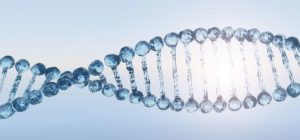It’s been reported that 2 in every 100 men have low testosterone. But what are the symptoms of low testosterone? And how is it possible to prevent them? Read on to learn more!
RELATED: How To Build Muscle Mass And Fight Muscle Loss
In this article:
Low Testosterone
Testosterone is the male hormone that is produced in the testicles, and it plays a crucial role in male sexual development and functions. It’s an important hormone that is needed for sperm production and preserving muscle mass.
Testosterone levels decrease as men age, and it is known that at least 2 in every 100 men have low testosterone. Low testosterone affects the human body in many ways. Muscle loss, low sex drive, erectile dysfunction are the most common symptoms.
Symptoms of Low Testosterone
Muscle Loss
Testosterone is the male hormone that helps build muscles in a manly figure. Muscle cells have receptors named ‘androgen receptors.’ Muscle fibers are maintained when the testosterone binds to these receptors, and without testosterone, maintenance of muscle stops and muscle can be lost.
To gain back muscle mass, having a healthy diet is very important. Activating your muscles through Strength training is also very important for building muscle mass.
Low Sex Drive
With testosterone levels decreasing with age, men can experience low sex drive. But not all men who have low testosterone levels experience low sex drive. Low sex drive can be triggered by other factors as well.
Testosterone supplement treatment can improve the sex drive for men, but the long-term side effects are still unknown.
Erectile Dysfunction
Low testosterone is one of the factors that trigger erectile dysfunction, but it’s often not the only reason. Erectile dysfunction can be caused by many factors, such as high blood pressure, diabetes, smoking, alcohol consumption, high cholesterol, thyroid problems, and stress.
For erectile dysfunction, the most common treatment is testosterone supplement treatment. Drugs that are known as PDE-5 inhibitors are used to promote erections by increasing blood flow to the penis. The most well-known drugs are;
- Stendra
- Viagra
- Cialis
- Levitra
Hair Loss
Testosterone promotes the production of Dihydrotestosterone (DHT), which is used by the body in the skin, prostate, and hair follicles. Thus as the testosterone levels decrease, DHT levels also decrease, causing hair loss.
For hair loss, the most common medical treatment is the ones that inhibit the 5-alpha reductase enzyme, which converts testosterone to DHT.
Other treatments that don’t involve testosterone or DHT are;
- Surgical hair follicle transplant
- Laser treatment
- Ketoconazole
- Minoxidil
Weight Gain
Testosterone has a vital role in metabolism. Multiple studies have reported that men with low testosterone levels have more body fat compared to men with higher levels of testosterone.
For weight management, it is essential to eat less and exercise more; strength training is vital, as mentioned before.
Mood Swings
“Low levels of testosterone can cause a cycle of a man having low energy, thus not exercising, then gaining weight and feeling less attractive,” says Michael A. Werner MD, a urologist from New York. Side effects of low testosterone can cause men to feel stressed and depressed.
For improving mood swings, it is important to examine the current health habits and try to reduce or get rid of unhealthy habits such as smoking, excessive alcohol consumption, etc.
Men who suffer from mood swings should talk to their partners about their condition and how it affects them. Getting support from a loved one can help boost mood and improve the relationship.
Managing stress can also help mood swings caused by low testosterone. Some men might think having low testosterone levels is something to be ashamed of, but it is actually a common condition, and it is very normal. Everyone already has a good amount of stress in their lives, and stressing over low testosterone levels will just add on to it and will make it worse.
Consulting a doctor about testosterone replacement treatment can also be beneficial for mood swings. Getting professional help and preventing chronic stress will be important.
With the information provided in this article, we hope our readers now have more knowledge about low testosterone and its effects on the male body. We highly recommend consulting a doctor before starting to use any medication or supplement therapy.
Tell us what you think in the comments section! Has this article been helpful?
Up Next:
- Hormone Therapy Lowers Change Of Muscle Loss As We Age
- Testosterone Level Test: How And Why It Matters
- How To Prevent Losing Muscle Mass With Hormones And Protein



